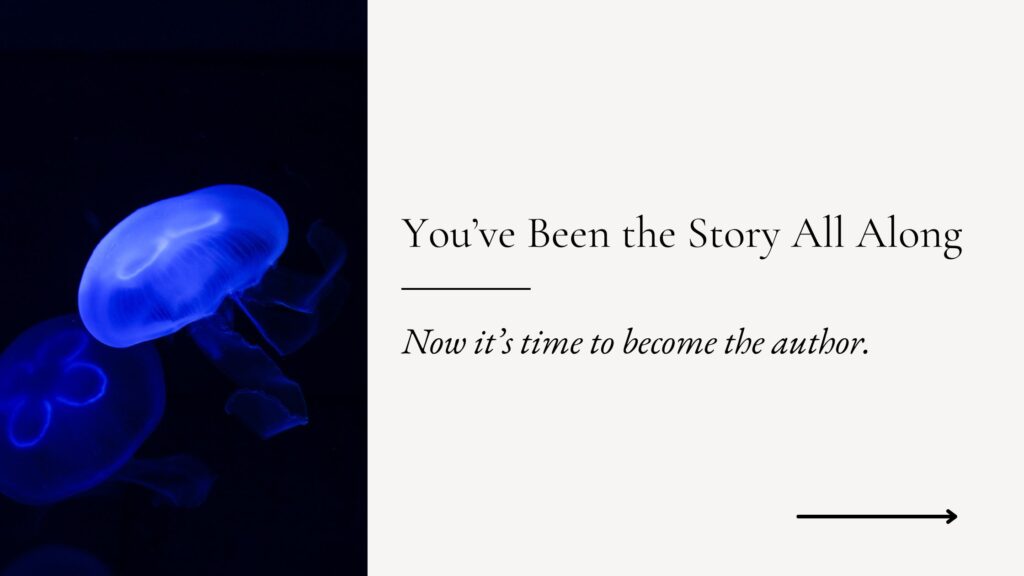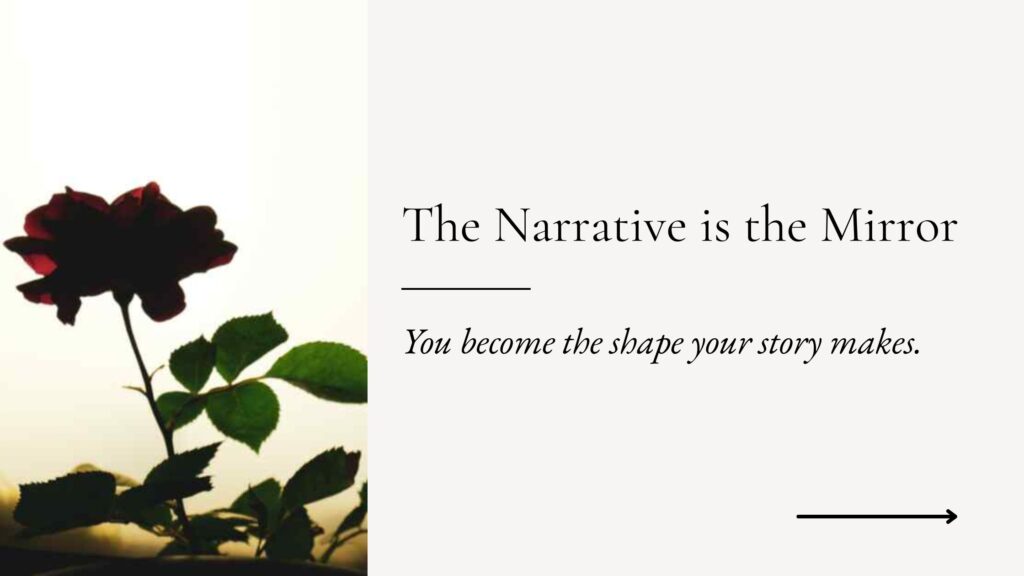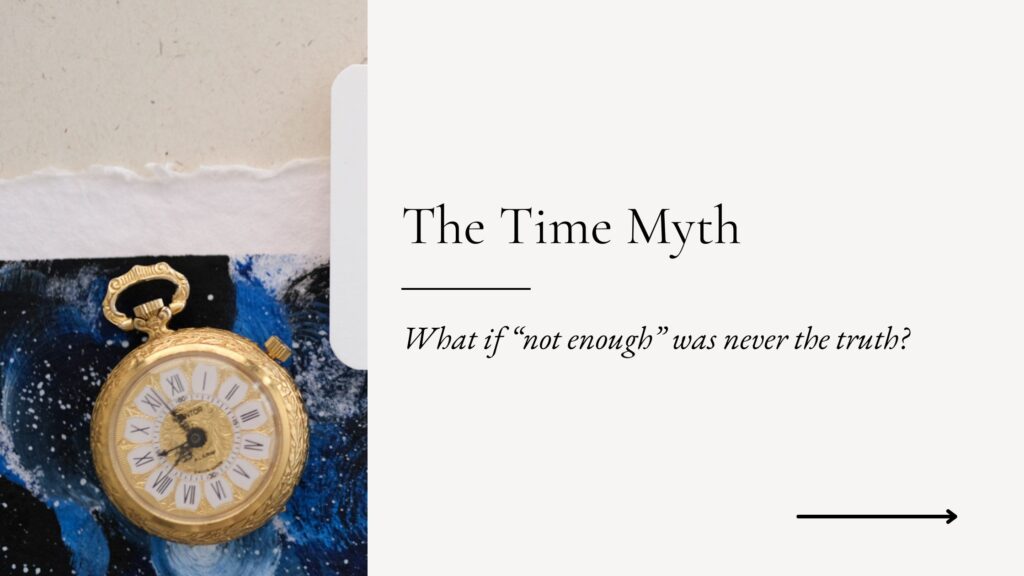
What myths do you live by?

Stories aren’t just cute, harmless things we read to children at bedtime.
Under the guise of origin myths, cultural stereotypes, or even our identities, stories are the essential means by which we establish and convey meaning to events and actions.
You don’t have to be an avid reader to witness the power of stories. Most stories actually reside within us, shaping our thoughts even as we go about life, blissfully unaware of the complex narratives we have been trained to instantly recognize and operate with.
Many of the stories we carry aren’t about who we are — they’re about how we’re supposed to behave.
Even our relationship with time gets shaped by these inherited myths.
If you’ve ever felt lazy, lost, or chronically behind, it might not be a flaw.
It might just be a bad story.
It is usually enough to just glance at a person or an object, and an entire network of relevant concepts and meanings springs to mind.
Try it. Look around you and focus on the first object or person that you see. What thoughts surface?
The power of stories: from one glance to a branching story
I tried this exercise myself so we can look at an example together.
In my case, my eyes landed on the case that houses my headphones. Seeing this object instantly made me feel good and think of music, of some of my favorite artists, but also of the many podcast episodes I’ve been listening to using them. I also remembered I used to listen to music while at the gym, a place I haven’t been to in a while. That’s when a bit of guilt surfaced.
When my eyes focused on the spots on the soft plastic of the case body, I felt my frustration at failing to remove those spots. Then I thought about the many places I’ve listened to music using my headphones, and a whole gallery of places fleeted through my mind.
In the span of a few seconds, a narrative made up of blended stories came to mind. I experienced different and varied emotions, from happiness to frustration. If I were to detail it all we’d probably end up with something as long as Proust’s In Search of Lost Time.
All that from just one glance. This is the power of stories.
We don’t normally notice this because we are so used to operating with bits and pieces of stories as conceptual units. Still, these shortcuts can be treacherous if we forget that stories are fictional (more on this later).

The power of stories
Stories are the workhorse of civilization. They are essential tools we use daily throughout our lives.
Here are some ways we use the power of stories:
1. We relate to others and share memories through stories
“Remember that time when…?” uttered by a friend can instantly transport us to another time and place. And by retelling those stories, we re-live those times again and again.
We can actually travel through time and space to the memory we are referencing through our story, and we can take others with us by sharing it.
The oldest memories of our civilization have survived in the form of stories. Long before we invented writing, stories were memorized and shared within communities to create a feeling of belonging.
Families share stories too. Whenever the extended family gathers, there are some shared stories that are told again and again. They can be fun or sad, but their role is to remind all the family members of their shared heritage.
Nowadays, social media is big on sharing stories. The fact that social media stories aren’t necessarily written might prompt some to say that those aren’t “real” stories, but really we’ve just returned to the primordial means of storytelling, which is our voices.
Stories aren’t confined to words and writing. Although we’ve become accustomed to thinking that stories live in books, they actually unfold in our minds. Without a reader, a book is inert, it’s just a collection of symbols. We are the ones who interpret them and the action of decoding those symbols takes place in our minds.
We utter words to tell stories and use all our senses to interpret or find elements of stories around us, which we then share.
No matter their form, when we share stories, we foster a sense of belonging.
2. We learn by doing and by telling stories
I believe stories drive our motivation to learn and explore the world.
There are some things, like riding a bicycle, that we learn by doing. These things are generally practical and obviously useful.
Anything even remotely abstract requires a story to drive our motivation to learn and explore.
If mathematics and physics were limited to strings of numbers and equations without an underlying meaning, a story behind them, most people wouldn’t bother learning about them, let alone researching in these fields.
Learning how to calculate the square root of a number may sound boring. But to learn mathematics in order to be able to discern the secrets of the universe? That’s a completely different story matter.
Once we’re hooked by the story, specific details of how things actually work or how to calculate this or that also become interesting, but it has to start with a compelling story. Otherwise we end up with disinterested students who complain there’s no point in learning about anything.
3. Even science is not immune to storytelling
Before we built awesome telescopes that can stare into space and give us actual images of it, we used to imagine the solar system and calculate the movements of celestial bodies. We still calculate their movements even now, when we can also observe them.
Using storytelling, we can articulate a narrative based on these calculations and draw conclusions. Many times, later data contradicts our initial conclusions, so we have to analyze it again and re-interpret it.
Yet all the calculations in the world are meaningless without the interpretation a scientist’s mind gives them. And that interpretation takes the shape of a story about the universe or a very specific part of it.
Science itself is a story we tell ourselves about the universe. And the beauty of it is that it constantly shifts and changes, together with our theories.
4. We connect through storytelling
Our society relies on stories to communicate meaning.
Civilization was built on the basis of what we call origin myths, i.e., stories. The practice of using stories to make sense of the world is older than recorded history.
And speaking of history, that’s probably the longest ongoing story we’ve ever told… it’s filled with gaps and heroes and villains, just like any other good story. And it connects us all in a global narrative.
We make sense of the world through stories. Even if things happen randomly, we then arrange a narrative around them to convey a deeper meaning or a sense of order.
Harnessing the power of stories
It’s important to remember that, even though facts and events are real, stories are mental constructs. They belong to the realm of fiction. This means we already have lots of tools and strategies to interpret and analyze them.
However, precisely because they are tools, we should be intentional and mindful of the ways in which we use them. They can do harm if allowed to develop on their own or if we let others impose them on us.
On the other hand, if we take ownership of our own stories, we can transform our lives.
It’s up to us to wield the power of stories with intention.
Myths shape us. Archetypes echo through our identities. Stereotypes, too, are stories — flattened and repeated until they feel like fact.
And we don’t just tell stories — we store them.
Memory and identity are deeply entwined. I explore this more in:
→ The Science Behind My Mind Palace Ritual
Most of the time, these stories work invisibly. Until one day, you start to wonder:
Is this really mine?
If you’re beginning to question the scripts you’ve inherited, you’re not alone.
➤ Start here: How Stories Shape Us: Rewriting Your Life Through Narrative
It’s a practical invitation to notice, disrupt, and reshape the narratives beneath your decisions.
And when you’re ready to live your new story with clarity and care:
➤ Read: Transform Your Life with Narrative Coaching
It explores what story-based coaching really is — and how it can help you rewrite from the inside out.
Want to know more about the concepts underlying the Living Lore System?
➤ Explore: The Science Behind My Systems: How a Narrative Framework Keeps Me Energized↗.
What happens when the personal narrative breaks down — when burnout isn’t just physical exhaustion, but a collapse of symbolic continuity?
➤ Read: Burnout and Narrative Collapse.
Ready to Reclaim Your Own Story?
If you’re curious about how story-based coaching can help you rewrite your narrative, clarify your path, or reconnect with your inner voice…
Let’s explore your next chapter – together.


